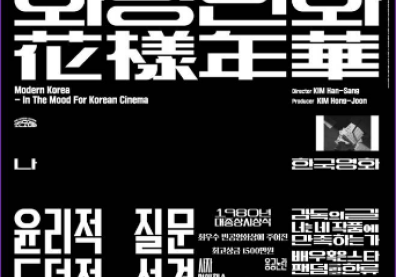Appel d'air/Lack of air. Oppression and breathing in Seoul cinema

In 1930s Korea, a wife and mother flies away from her family nest for a love affair. In 1960, a father impregnates a young maid whose wife asks for an abortion. In 1962, a judge leads a married life with a man who finds it increasingly difficult to cope with his inferiority complex towards her. And, in 1987, three men who, for various reasons, have no place to go, find themselves in a manwabang, a manwha (Korean comics) reading space run by a woman in a working-class neighborhood...
These are the stories of four Korean films set in Seoul, in a stifling atmosphere from which each character tries to escape in his or her own way, even if the ending is not always happy: Yang Ju-nam's Sweet Dream (Mimong, 1936), Kim Ki-young's The Handmaid (Hanyeo, 1960), Hong Eun-won's A Woman Judge (Yeopansa, 1962) and Kim Hong-Joon's Rosy Life (Jangmibit Insaeng, 1994).
Through these four films from different eras, we'll look at the way the country's capital is explored in Korean cinema, both on location and in the studio, relating them to the historical and social context - from Japanese colonization (1910-1945) to the period of military dictatorships (from the 1960s to the 1980s). The place of women in society and in cinema will also be explored. In addition, Kim Han-Sang's In the Mood for Korea Cinema (Hangugyeonghwa hwayangyeonhwa, 2022), a montage film based on archive footage broadcast on the South Korean channel KBS, will shed light on the evolution of Korean society and cinema in the last decades of the 21st century, with a particular focus on the year 2003, when this cinema, which had long remained unnoticed on the international scene, flourished.
On the occasion of these days, we will have the pleasure of welcoming Mr. Kim Hong-Joon, director of the Korean Film Archives, filmmaker and professor emeritus at the Korea National University of the Arts.
Responsible persons
- Koo Moduk
- Stéphane Thévenet
- Jeong Eun Jin